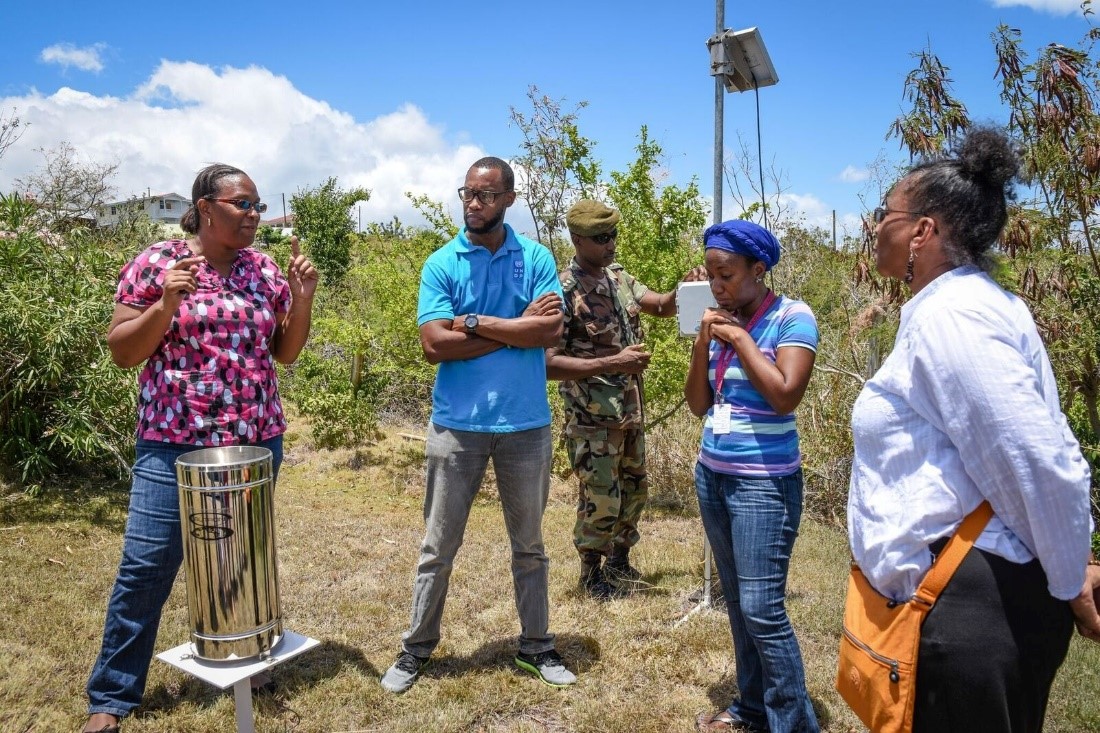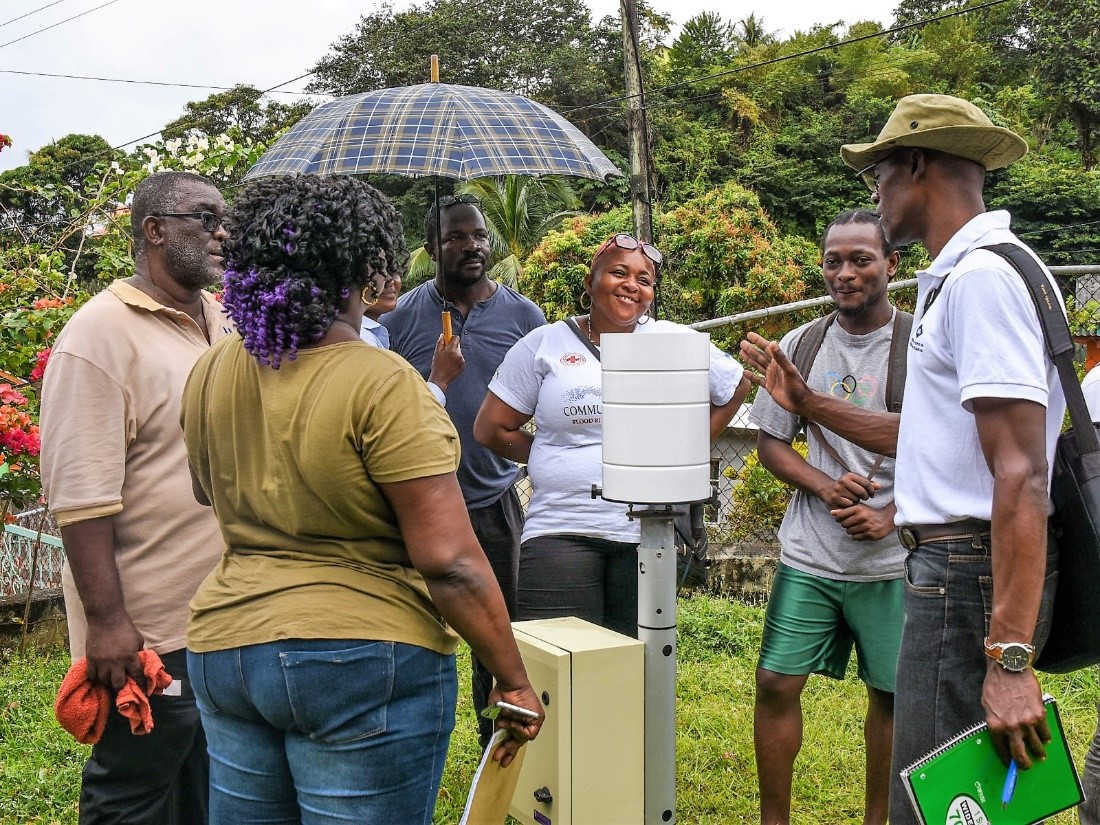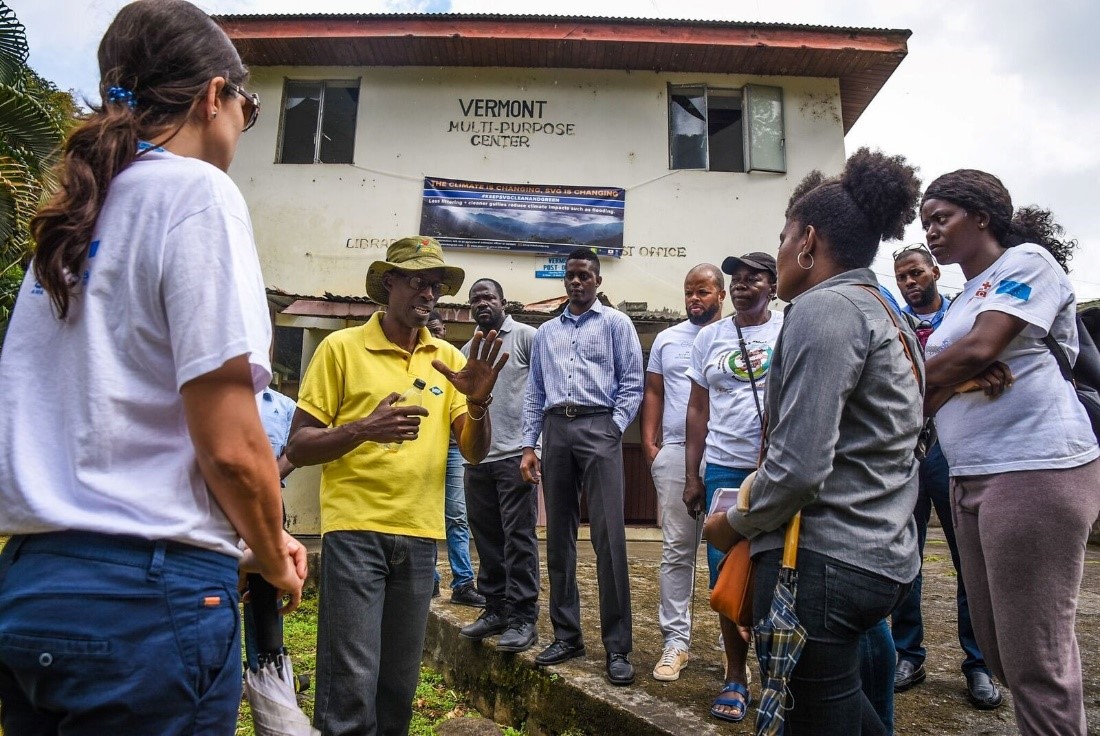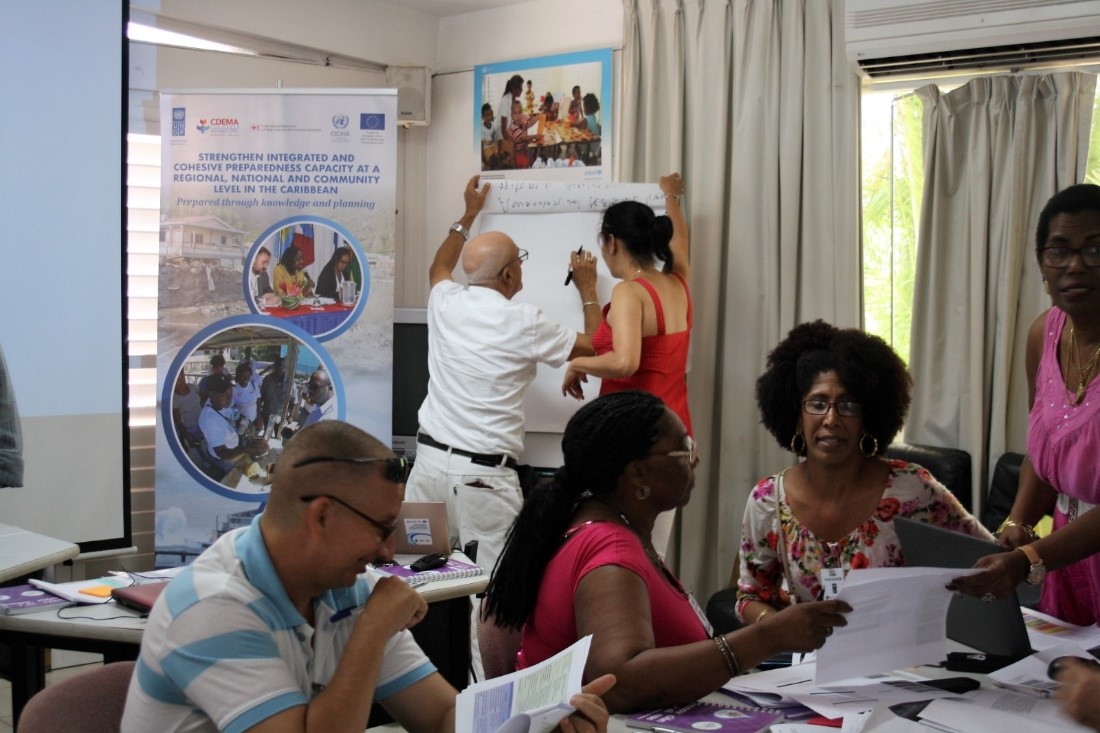 Enhancing Early Warning Systems in the Caribbean
Improving regional disaster preparedness through South-South Cooperation
Enhancing Early Warning Systems in the Caribbean
Improving regional disaster preparedness through South-South Cooperation

Challenges
The Caribbean region is highly prone to natural hazards, such as hurricanes, floods, volcanic and seismic activities, droughts, and wildfires. The increasing impact of climate change and the risks posed by a range of natural, environmental and technological hazards are among its most critical development problems. The need for further action to address preparedness capacities reinforces Early Warning Systems (EWS) and fosters exchanges and collaboration among countries and linkages with regional institutions. A people-centred multi-hazard early warning system empowers individuals and communities to act with sufficient time and in an appropriate manner to reduce the possibility of personal injury and illness, loss of life and damage to property, assets and the environment. It is a fundamental part of the disaster risk reduction approach and plays a recognized role in the Sustainable Development Goals: SDG 11 on promoting sustainable cities and communities and SDG 13 on addressing climate change.
Towards a Solution
The increasing frequency and intensity of disasters impact reinforces the need of implementing EWS and foster exchanges and collaboration among countries and linkages with regional institutions. Therefore, five countries in the Caribbean – i.e. Antigua and Barbuda, Dominica, Dominican Republic, Saint Lucia and Saint Vincent and the Grenadines – set out to improve their EWS counting on technical advice from Cuba through South-South cooperation.
An effective early warning system contributes to resilience, reduces vulnerability, and minimizes the loss of life and economic impact of a hazardous event, playing a key role in disaster risk reduction in the Caribbean region. Therefore, it contributes to achieve the SDG target of 11.5 related to “reduce the number of deaths and the number of people affected by disasters and decrease the direct economic losses relative to the global gross domestic product caused by disasters,” and SDG target 13.3 related to improving awareness-raising and human and institutional capacity on climate change mitigation, adaptation, impact reduction and early warning.
This initiative aimed to increase access to EWS tools and knowledge o at the regional, national and local levels, through the development, improvement and adaptation of models, methodologies and toolkits. It is supported by two consecutive 18-month projects financed by ECHO and implemented by UNDP, in coordination with CDEMA and the IFRCD.
The project followed four key steps for effective South-South knowledge transfer: (i) Strengthening the capacities of the offering country (Cuba) to transfer knowledge, which included the systematization of the conceptual, methodological, technical and institutional aspects of the proposals (EWS Toolkit), the training of the technical experts on pedagogical skills and the establishment of coordination mechanisms among the Cuban entities involved; (ii) Defining the demand, based on gaps and needs assessments, whereby the countries requesting cooperation select the most suitable options from the Cuban EWS Toolkit and reached agreements on potential areas of collaboration; (iii) Preparation of solutions packages by Cuba and recipient country governments, including the definition of a Priority Action Plan (i.e. objective, activities, resources and budget), adaptation, implementation and transfer; (iv) Systematization and communication, to create and share knowledge capturing the South-South cooperation activities and offering them within and beyond the region.
With Cuban Government support – which included training missions to Cuba, remote technical assistance, and implementation missions of Cuban officers – the requesting countries were able to carry out the following actions:
- Antigua and Barbuda developed the Common Alert Protocols (CAPs) digital tools, testing them through community simulations and drills.
- Dominica produced a hazards, vulnerability and risks study/methodology in the Rousseau River basin, while training an in-country technical team in this methodology.
- The Dominican Republic implemented numerical forecasting for flash flooding by using a free and open software.
- Saint Lucia produced a hazards, vulnerability and risks study for intense rains and coastal floods in the Dennery community, while training an in-country technical team.
- Saint Vincent and the Grenadines promoted a volunteer river observers’ system, including community-based equipment and trainings.
Each action is innovative by itself and has leveraged pertinent knowledge among countries sharing similar contexts (e.g. weaknesses and need for capacity-building) and exposure to similar hazards. Furthermore, this promotes an important and growing trajectory of coordination and harmonization across the region.
This initiative has strengthened regional and national capacities in preparedness and prompt action. The five countries have advanced in policymaking and programming for early warning systems. Multiple stakeholders, including community members and vulnerable groups, were involved in the process, broadening the understanding and ownership of early warning and preparedness and integrating national and community levels.
Lessons learned from the South-South cooperation initiative undertaken in the Caribbean may contribute to the global knowledge pool. These include a precise definition of the demand, the packaging of the offer based on the “know how” and the adaptation of the tools to the local context and needs. The experience highlights the importance of carefully considering the key steps for effective knowledge transfer. Main challenges are related to the need of a results-based planning approach that measures the impact of the South-South cooperation initiative, the need for a sustained investment to promote sustainability and the institutionalization of the transferred capacities.
Contact Information
Countries involved
Supported by
Implementing Entities
Project Status
Project Period
URL of the practice
Primary SDG
Primary SDG Targets
Secondary SDGs
Secondary SDG Targets
Similar Solutions
| NAME OF SOLUTION | Countries | SDG | Project Status | |
|---|---|---|---|---|
100% Online Electronic Apostille and Legalization Sharing Colombia’s effective e-government system with other countries in the region |
Antigua and Barbuda, Cuba, Dominica, Dominican Republic, Saint Lucia, Saint Vincent and the Grenadines | 16 - Peace and Justice Strong Institutions | Completed | View Details |
Accelerating the Transformational Shift to a Low-Carbon Economy in Mauritius Towards supplying 35 percent of the country’s energy needs with renewables by 2025 |
Antigua and Barbuda, Cuba, Dominica, Dominican Republic, Saint Lucia, Saint Vincent and the Grenadines | 05 - Gender Equality 09 - Industry, Innovation and Infrastructure 13 - Climate Action | Ongoing | View Details |
Accelerator Labs Network Following collective intelligence methods to address emerging sustainability challenges and the growing demand for local solutions |
Antigua and Barbuda, Cuba, Dominica, Dominican Republic, Saint Lucia, Saint Vincent and the Grenadines | 08 - Decent Work and Economic Growth 13 - Climate Action | Ongoing | View Details |
Adaptation for Smallholder Agriculture Programme Establishing better working conditions for smallholder farmers through the use of good practices and new technologies |
Antigua and Barbuda, Cuba, Dominica, Dominican Republic, Saint Lucia, Saint Vincent and the Grenadines | 08 - Decent Work and Economic Growth 11 - Sustainable Cities and Communities 13 - Climate Action 15 - Life on Land | Ongoing | View Details |
Addressing the Transboundary Dimensions of the 2030 Agenda through Regional Economic Cooperation and Integration in Asia and the Pacific Promoting co-deployment of ICT and transport infrastructure corridors in Central Asia region |
Antigua and Barbuda, Cuba, Dominica, Dominican Republic, Saint Lucia, Saint Vincent and the Grenadines | 09 - Industry, Innovation and Infrastructure 13 - Climate Action 17 - Partnerships for the Goals | Completed | View Details |



